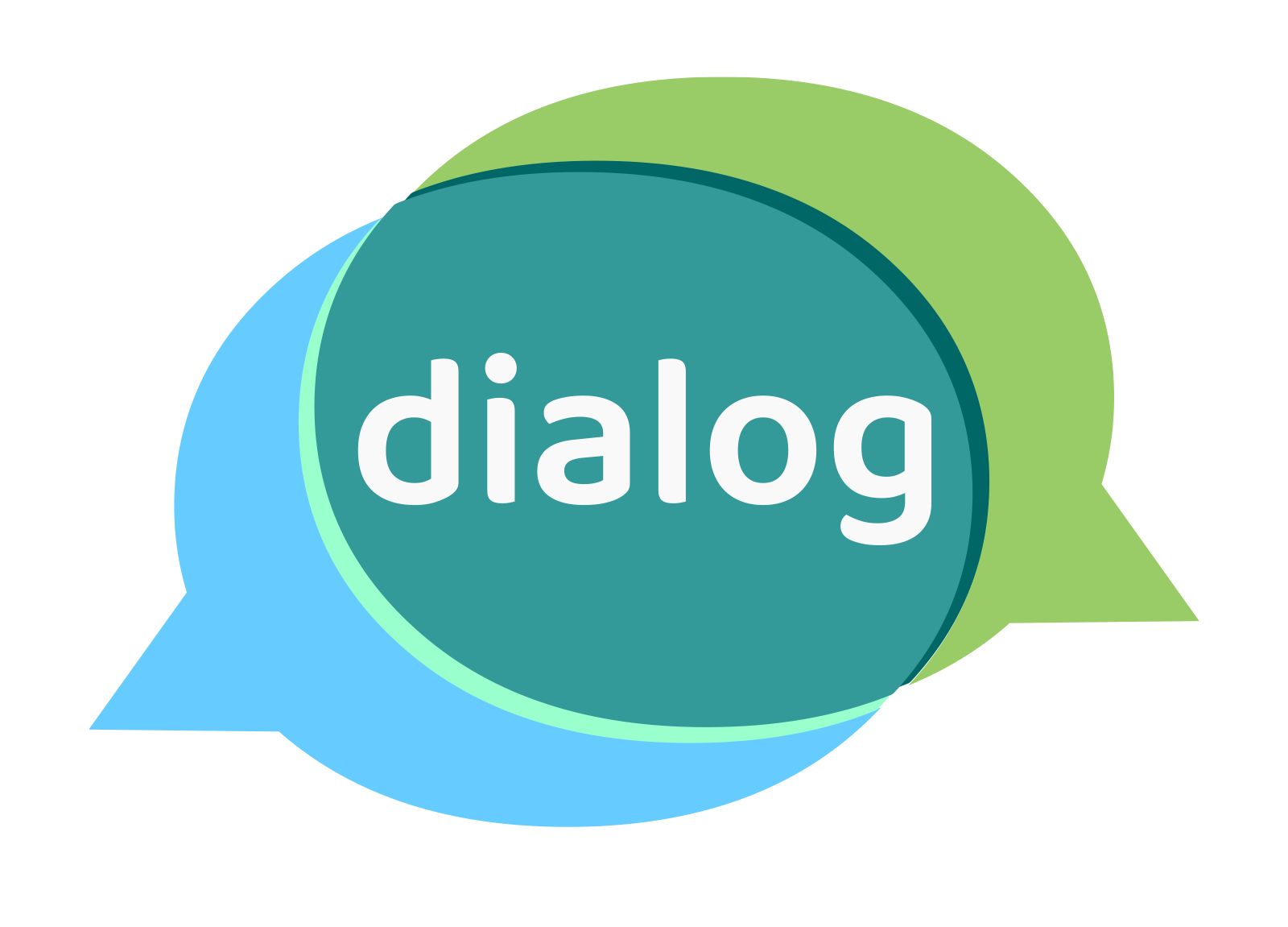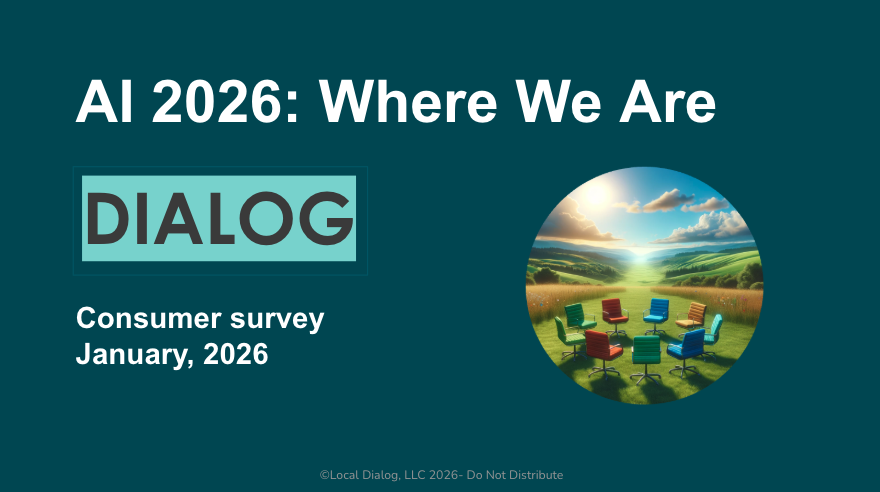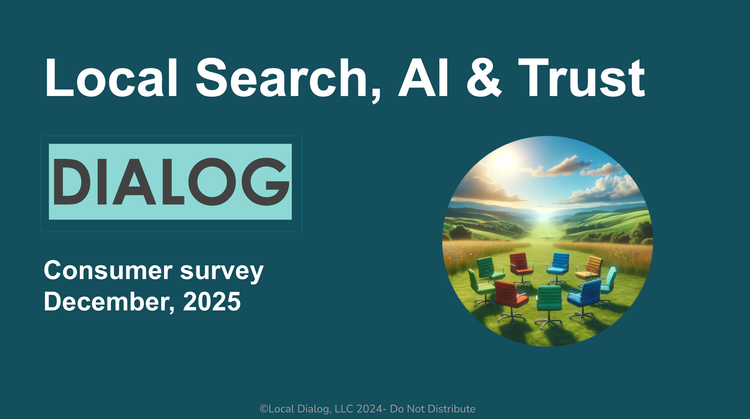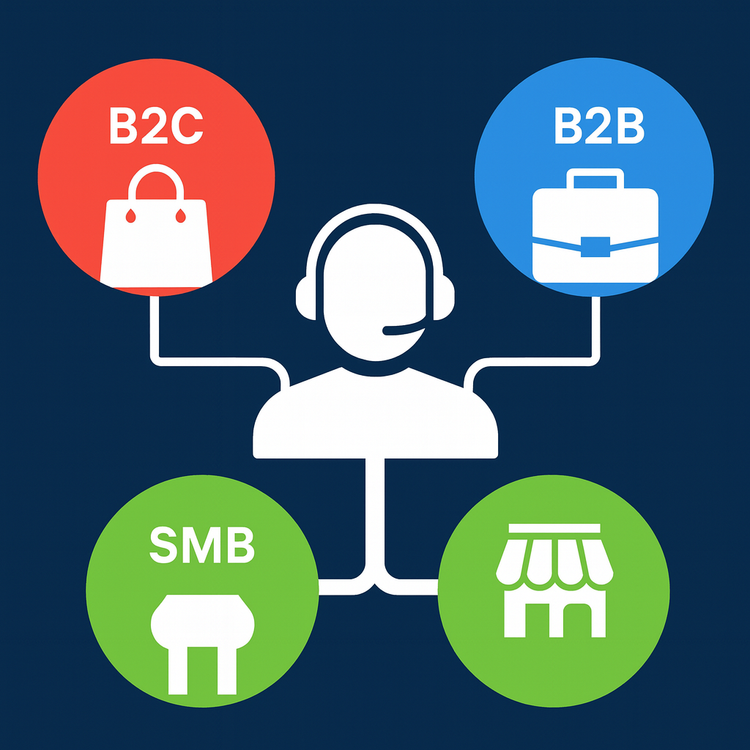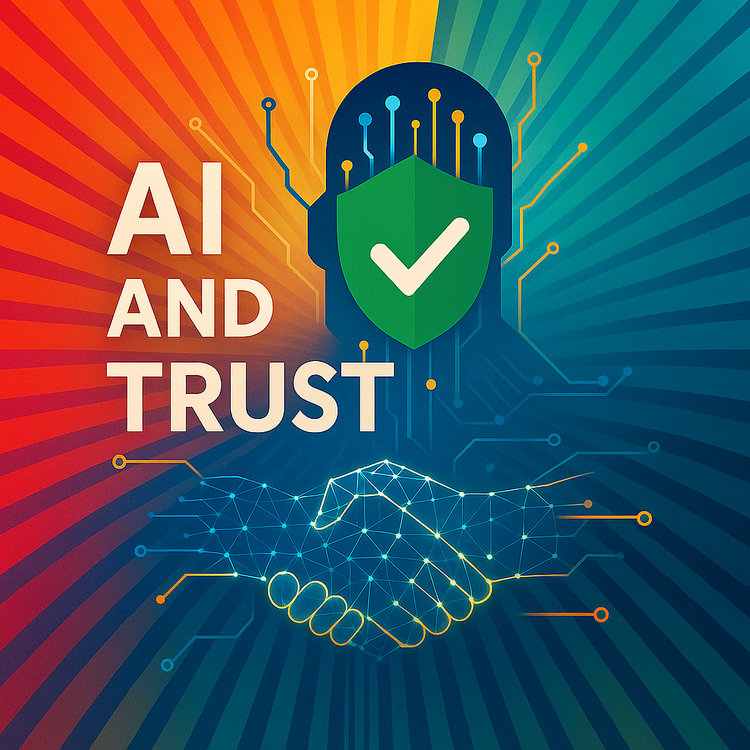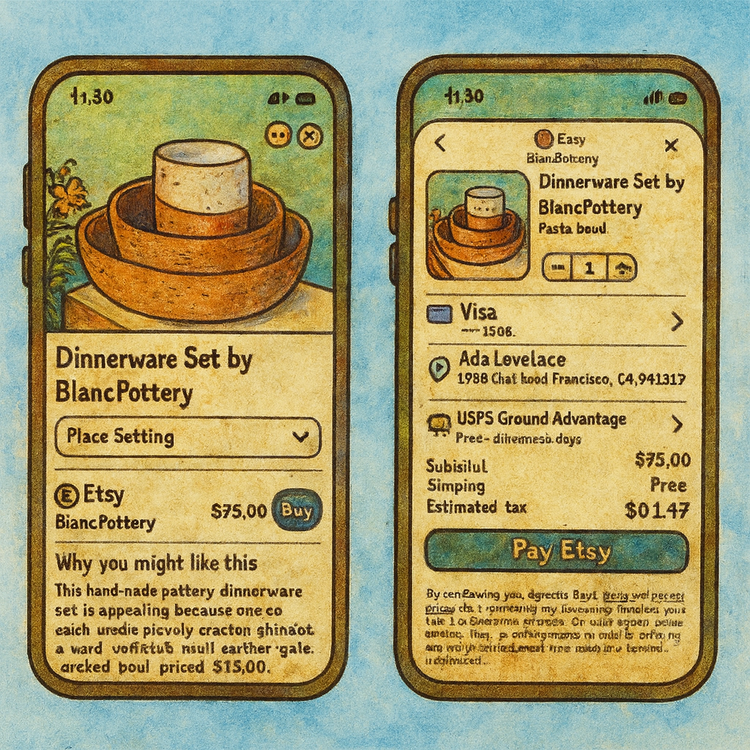Local Chatbots Poised to Deliver
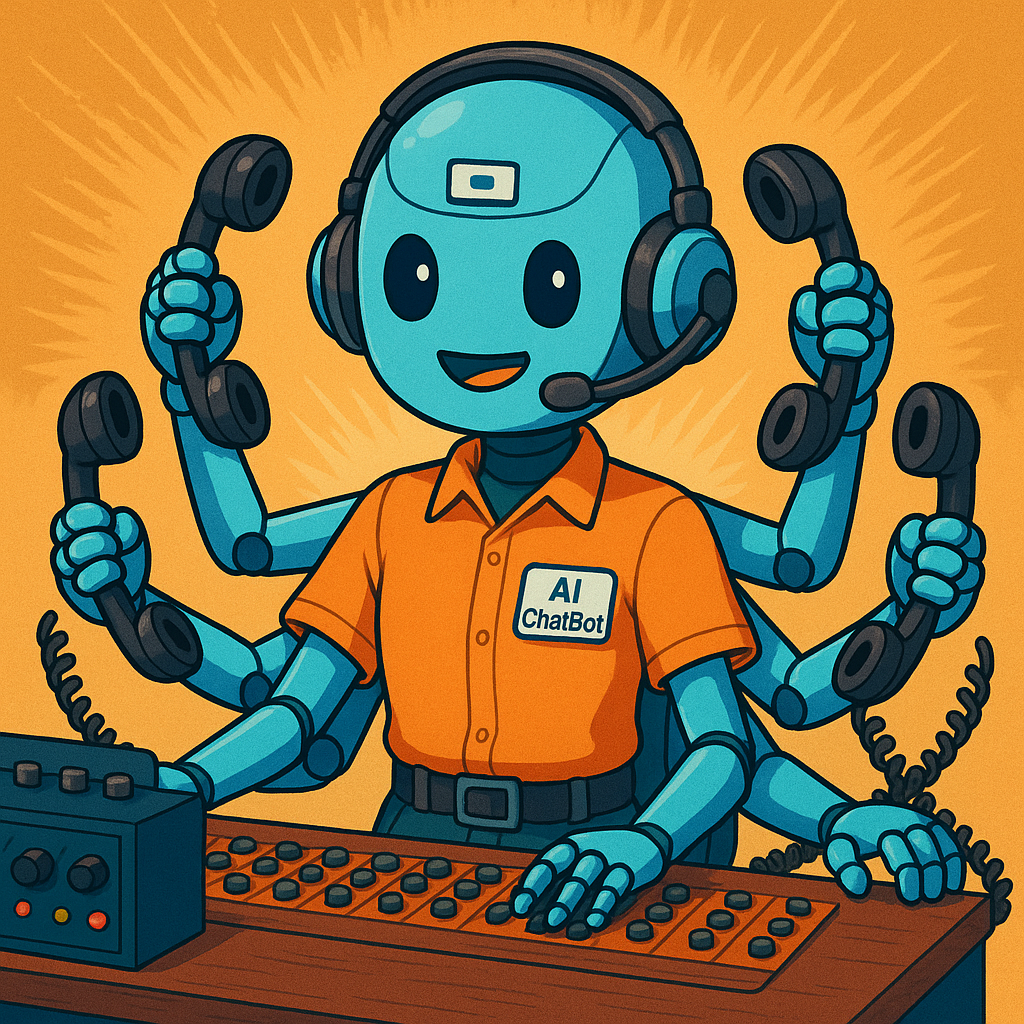
Though the history of chatbots goes all the way back to the 1970s, modern chatbots with Natural Language Processing started appearing in the mid-2010s. Many were deployed as lead-capture tools or for customer service on brand websites.
Earlier chatbot experiences were often disappointing and frequently unable to resolve customer service questions or issues without human support.
A New Era
Now, Generative AI represents another leap forward in what chatbots can do and will usher in a new era where they can truly deliver on their customer experience (CX) potential. Dialog’s latest consumer survey (Wave II), conducted this month, points toward this and highlights AI's broader adoption and momentum.
AI tools like ChatGPT, Perplexity and Claude are becoming more deeply embedded in everyday consumer behavior. For example, we saw continuing migration from weekly to daily AI use. And among other applications, chatbots are emerging as a potentially impactful solution for local businesses aiming to modernize customer engagement.
Of the 1,000 Wave II survey respondents, 59% reported having interacted with a chatbot on a local business website*. That number jumps to 68% for those under 60 years of age.
Very Positive Experiences
Most respondents, which includes many older users, said their experience was positive across several dimensions: trust, speed, efficiency, ease of use and brand perception: "It made the business seem more modern or tech savvy." Many even said the chatbot experience was preferable to dealing with a person.
You'll discover similar findings about bots being preferred to people in other chatbot surveys. However, what's striking here is the preference margin: a 56 point gap in favor of the chatbot. We're also starting to experience AI-based CX improvements ourselves, "in the wild."
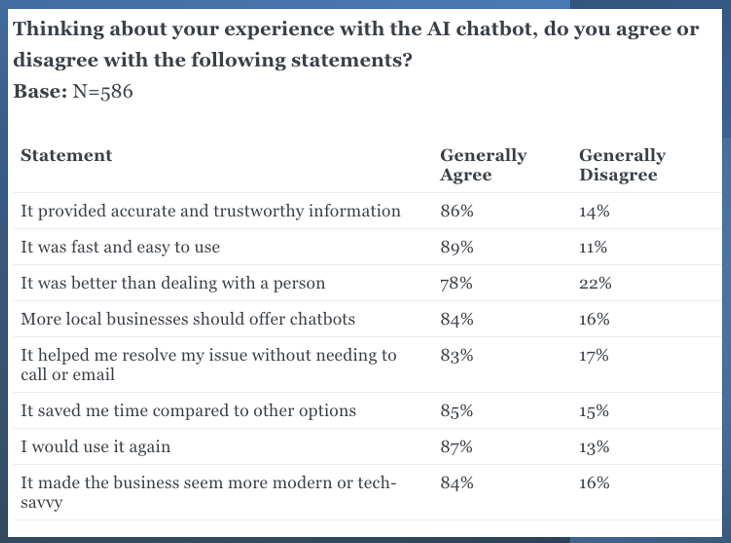
Our chatbot specific findings generally align with broader industry data from Salesforce and others showing that consumers recognize the convenience and potential efficiency of chatbots in customer service and other arenas.
Consumers increasingly use chatbots not just for support but for completing tasks: checking order status, booking appointments, processing returns and even making purchases. In some industries, like travel and e-commerce, chatbots are becoming the first point of contact and seen as boosting conversion rates and improving customer satisfaction scores.
Rise of Everyday AI
Since Dialog's first consumer survey in November 2024, daily AI usage has jumped roughly four points. At the highest level, consumers are using AI to answer general informational questions (40%), to research and compare products (26%), and to study/learn (25%) among a longer list of applications. And while AI-driven local business discovery remains relatively niche, it's on the rise—especially in categories like restaurants, healthcare, home services and retail.
The increased use of Google’s AI Overviews (AIOs), which 91% of users find helpful, signals growing comfort with AI across search categories. Our data also show that 72% of respondents believe AI will replace traditional search within three years, up 3 points since November. This creates a large opportunity for proactive, AI-powered tools like chatbots that can meet customers where they are.
Changing CX Expectations
Our most recent small business survey (August, 2024) found that customer service was the number three use case for AI. We suspect many of these deployments may still be relatively basic.
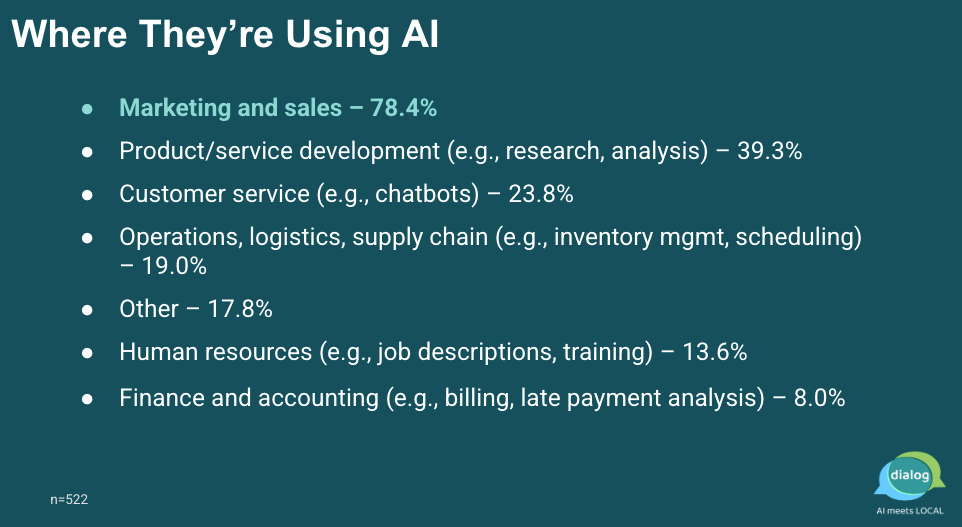
The new generation of chatbots can go way beyond simply answering FAQs. They can act as a 24/7 assistant and kind of front door for local businesses.
A well-implemented chatbot can:
- Reduce human-handled inbound calls and emails
- Capture leads that otherwise would be missed
- Convert more leads by offering timely responses to prospects
- Facilitate bookings and transactions 24/7
- Enhance satisfaction, especially among users with higher CX expectations.
Beyond all this, chatbot interactions capture valuable data and reveal consumer pain points, service gaps and sales opportunities. Local businesses can use these insights to refine their offerings, as well as their marketing and messaging.
Many local businesses are undoubtedly aware of some of these benefits but probably not the full extent of chatbot capabilities and their value, let alone which vendors to work with. There's still a significant need for education.
Trust and Generational Shifts
While 62% of respondents in the Dialog consumer survey said they broadly trust AI outputs, satisfaction with "local chatbots" was significantly higher—suggesting that consumers trust AI even more when it delivers immediate, tangible value. That trust is also generational. Younger users, who are more accustomed to texting and messaging interfaces, are especially receptive to chatbots and often prefer them to traditional communication channels.
Finally, more than 84% of respondents under 60 agreed that "more local businesses should offer chatbots."
The Clock Is Running
People are increasingly being conditioned by ChatGPT and now Google AI to expect conversational experiences and the ability to get fast answers, and even take action within a chat environment.
Local businesses must ditch any 1.0 bots they're using and deploy something that really works, can handle real conversations, understand what customers actually want, and when to hand off to a human.
Local businesses should also put chatbots everywhere on their sites that customers might need help or get stuck.
Mining chatbot questions and interactions will produce a goldmine of customer insights with value across the organization. In many ways this will deliver more immediate value than consumer surveys or reviews.
From Novelty to Necessity
With the convergence of rising consumer expectations, rapid AI evolution, and positive user sentiment, chatbots will soon no longer be optional. And they may become table stakes for customer engagement.
Local businesses that adopt and optimize chatbot experiences will position themselves as modern, agile and customer-first. Those that hesitate may find themselves out-of-sync with what today’s—and tomorrow’s—customers expect.
Given that 68% of consumers under 60 have a very positive view of local business chatbots and 84% want them on more local websites, it's clear early movers will have a distinct advantage.
*Although we asked specifically about local business websites this may also reflect general customer service chatbot experiences.
